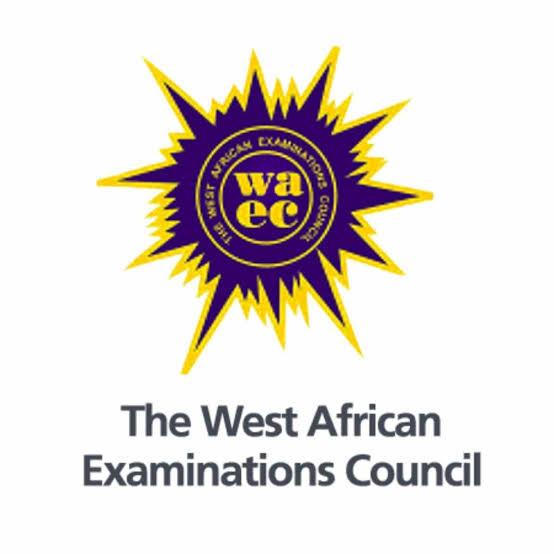Waec | Gce Geography Syllabus + Success Tips (2025/2026)
Geography is one of the most practical and scoring subjects for WAEC and GCE candidates. It covers both physical and human environments, maps, and data interpretation. Whether you're a science or art student, mastering the WAEC and GCE Geography syllabus is essential to passing the exam with ease. Below is the full syllabus, exam format, key tips, and FAQs to help you prepare effectively.
Official WAEC | GCE Geography Syllabus (2025/2026)
1. Physical Geography
| Topics | What to Study |
|---|---|
| The Earth | Shape, rotation, revolution, latitude, longitude |
| The Solar System | Sun, planets, moons, eclipses |
| Weather and Climate | Elements, factors, types of climate, measurement |
| Rocks | Types (igneous, sedimentary, metamorphic), formation |
| Landforms | Mountains, valleys, plateaus, plains, their formation |
| Earth Movements | Plate tectonics, earthquakes, volcanism |
| Drainage | Rivers, lakes, oceans, importance |
| Vegetation | Types and distribution of world vegetation |
| Soils | Types, formation, soil profile, importance |
2. Human Geography
| Topics | What to Study |
|---|---|
| Population | Census, distribution, growth, migration |
| Settlement | Types, hierarchy, functions, growth patterns |
| Transportation | Road, rail, air, water transport, importance |
| Economic Activities | Agriculture, mining, fishing, forestry, manufacturing |
| Resources | Renewable, non-renewable, conservation methods |
| Trade | Local, regional, international trade, trade routes |
3. Regional Geography
| Topics | What to Study |
|---|---|
| Nigeria | Location, population, resources, transport |
| Africa | Relief, climate, vegetation, trade |
| World | Continents, oceans, major countries, trade |
4. Map Reading and Interpretation
| Topics | What to Study |
|---|---|
| Topographical Maps | Symbols, scales, interpretation, contours |
| Measurement & Calculations | Distance, area, bearing |
| Gradient and Cross-Sections | Profile drawing and interpretation |
5. Geographic Information Systems (GIS)
| Topics | What to Study |
|---|---|
| Basic GIS Concepts | Definition, importance, applications |
| Remote Sensing | Satellites, aerial photographs, applications |
WAEC | GCE Geography Exam Format
| Paper | Content | Duration |
|---|---|---|
| Paper 1 | 50 Multiple Choice Questions | 1 Hour |
| Paper 2 | Essay Questions (Physical & Human Geography) | 2 Hours |
| Paper 3 | Map Reading, Fieldwork, Practical Geography | 1 Hour 50 Minutes |
Top Success Tips for WAEC | GCE Geography Exam
| Success Tip | Why It’s Important |
|---|---|
| Master Map Reading Skills | Appears in Paper 3 and is heavily weighted |
| Use Diagrams and Sketch Maps | Helps explain answers clearly in essays |
| Study Past Questions | Know repeated questions and common topics |
| Know Nigeria’s Geography Well | Nigeria is always emphasized in questions |
| Focus on Definitions and Examples | Many questions ask for practical examples |
| Practice Data Interpretation | Graphs, tables, and charts often appear |
| Understand Climate Types | Hot topic in both objective and essay questions |
| Watch Time During Exam | Manage your time between map work and essays |
| Use WAEC Recommended Textbooks | Like Essential Geography and New System Geography |
| Revise Regional Geography | Africa and Nigeria-specific questions are common |
FAQs About WAEC | GCE Geography Exam
1. How many papers are in WAEC Geography?
There are three papers: Paper 1 (Objectives), Paper 2 (Theory), and Paper 3 (Map Reading & Practical).
2. Is map reading compulsory?
Yes. Paper 3 focuses entirely on map reading, fieldwork, and data interpretation.
3. What topics are most repeated?
Drainage systems, climatic types, population, trade, and map reading often repeat.
4. Which textbook is best for WAEC Geography?
Essential Geography for Senior Secondary Schools is widely used and WAEC-recommended.
5. How do I answer geography essay questions?
Use subheadings, diagrams, and real examples. Avoid writing irrelevant stories.
Conclusion
WAEC and GCE Geography exams reward students who are practical and analytical. Focus on diagrams, maps, data interpretation, and key physical and human geography topics. Always read the questions carefully, use examples from Nigeria and Africa, and manage your time well during the exam.
With the official syllabus as your guide, consistent revision, and smart answering techniques, you’re well on your way to scoring an A1 in Geography.



